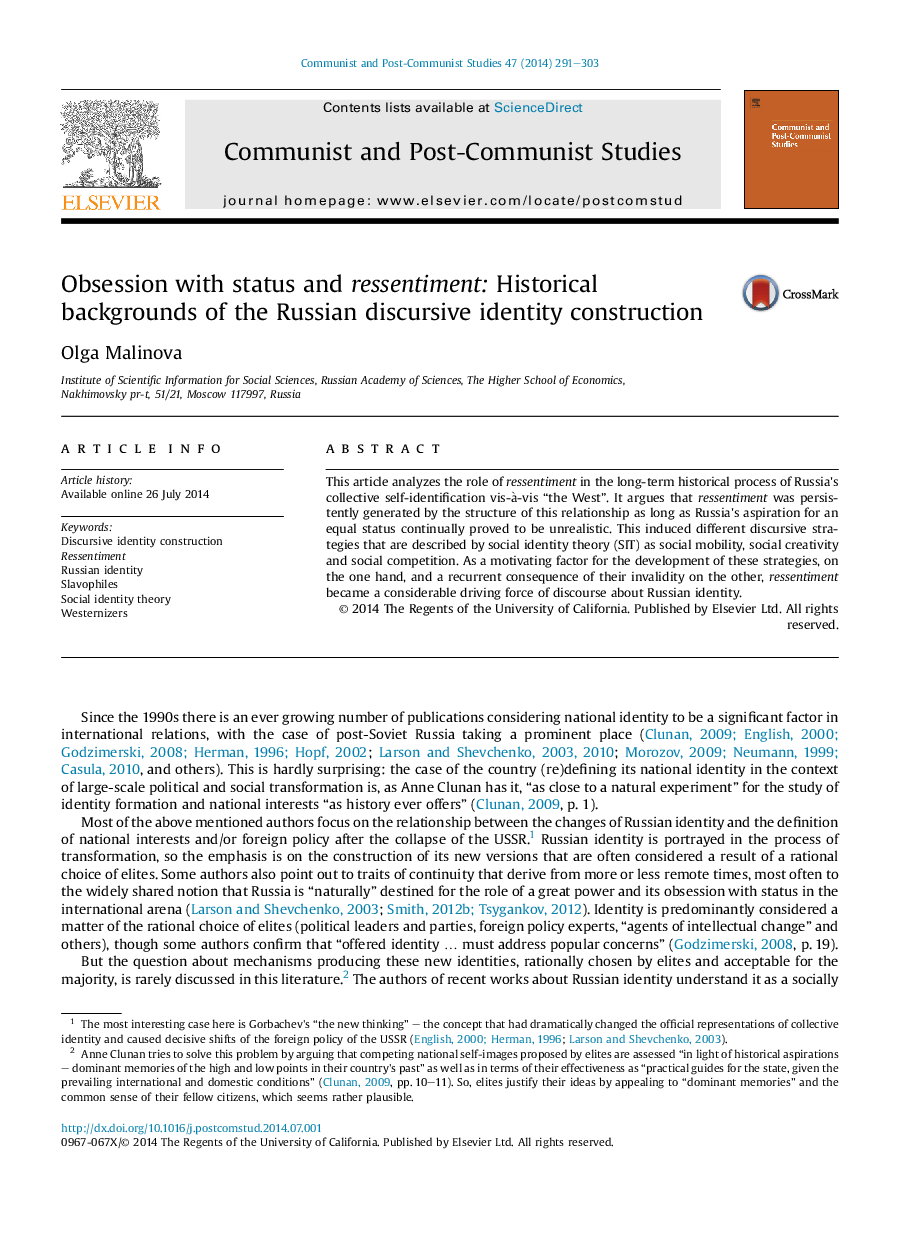| Article ID | Journal | Published Year | Pages | File Type |
|---|---|---|---|---|
| 1046357 | Communist and Post-Communist Studies | 2014 | 13 Pages |
Abstract
This article analyzes the role of ressentiment in the long-term historical process of Russia's collective self-identification vis-à-vis “the West”. It argues that ressentiment was persistently generated by the structure of this relationship as long as Russia's aspiration for an equal status continually proved to be unrealistic. This induced different discursive strategies that are described by social identity theory (SIT) as social mobility, social creativity and social competition. As a motivating factor for the development of these strategies, on the one hand, and a recurrent consequence of their invalidity on the other, ressentiment became a considerable driving force of discourse about Russian identity.
Keywords
Related Topics
Social Sciences and Humanities
Social Sciences
Development
Authors
Olga Malinova,
